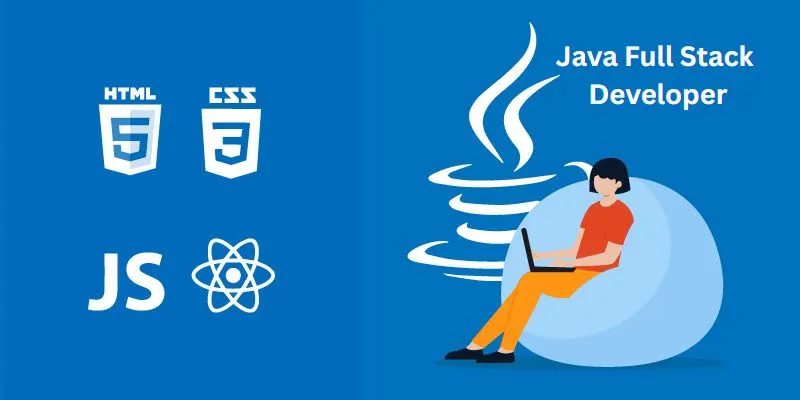
Full stack development is now one of the most popular career options in tech. Companies look for developers who can work on both the front end and back end, making sure everything runs smoothly from the user interface to the database. Java is a favorite language for full stack development because it is scalable, secure, and great for building strong applications. If you want to start or grow your career as a full stack developer, learning Java and its tools is important. Taking a Java Course in Trichy at FITA Academy can give you practical training and experience, helping you build the skills you need to succeed. In this blog, we will look at the top Java skills that can help you become a successful full stack developer and get noticed by employers.
1. Core Java Fundamentals
A solid understanding of Core Java is the first step. You should have a deep understanding of:
- Object-Oriented Programming (OOP): Concepts like inheritance, polymorphism, abstraction, and encapsulation.
- Data Types and Collections: Arrays, lists, sets, and maps.
- Exception Handling: Writing robust programs by managing errors gracefully.
- Multithreading: Understanding how to execute tasks simultaneously to improve performance.
Mastering these concepts ensures you can write clean, efficient, and maintainable code, a skill every full stack developer must have.
2. Java Frameworks and Libraries
Knowing the right frameworks and libraries will make you more productive and help you build scalable applications faster. Some of the most important ones include:
- Spring and Spring Boot: The most popular Java framework for building REST APIs and microservices.
- Hibernate: For efficient database interaction using Object-Relational Mapping (ORM).
- Maven or Gradle: Build tools that simplify project dependency management.
Employers expect full stack developers to know these frameworks as they form the backbone of enterprise-level Java development. Enrolling in a well-structured Full Stack Developer Course in Trichy can help you master these frameworks and gain the practical experience needed to work on real-world projects.
3. Front-End Development Skills
A full stack developer must not only write backend logic but also create appealing user interfaces. You should learn:
- HTML, CSS, and JavaScript: The building blocks of front-end development.
- Modern JavaScript Frameworks: React.js, Angular, or Vue.js for interactive web applications.
- Responsive Design: Ensuring your web pages work across all devices.
Combining your Java backend with a polished front end will make you a true full stack professional.
4. Database Knowledge
Understanding how to interact with databases is key. Learn:
- SQL: Writing queries, joins, and stored procedures for relational databases like MySQL or PostgreSQL.
- NoSQL Databases: Basics of MongoDB for handling unstructured data.
- JPA and Hibernate: To map Java objects with database tables efficiently.
A full stack developer should be able to design, optimize, and maintain databases for seamless data flow.
5. RESTful APIs and Web Services
Modern applications rely heavily on APIs for communication between front end and back end. You must know how to:
- Build RESTful APIs using Spring Boot.
- Consume APIs from the front end.
- Implement security using JWT or OAuth2.
Understanding APIs allows you to integrate external services and create scalable applications. Joining a practical-oriented Full Stack Developer Course in Salem can help you gain hands-on experience in building and consuming RESTful APIs, making you industry-ready.
6. Version Control and Collaboration
Every professional developer uses Git and GitHub for version control. Learning Git commands like clone, commit, push, and pull requests will help you collaborate effectively with teams and manage project changes without losing work.
7. Deployment and DevOps Basics
Knowing how to deploy your application is just as important as building it. Learn:
- Cloud Platforms: AWS, Azure, or Google Cloud for hosting.
- Containerization: Using Docker to package applications.
- CI/CD Pipelines: Automating builds and deployments with tools like Jenkins or GitHub Actions.
These skills show that you are job-ready and capable of managing production-level applications.
8. Problem-Solving and Soft Skills
Apart from technical knowledge, employers value developers who can think critically, troubleshoot efficiently, and communicate clearly. Practice data structures and algorithms, and work on your collaboration skills to excel in a team environment. Becoming a successful full stack developer requires consistent learning and hands-on practice. Mastering Core Java, frameworks like Spring Boot, front-end technologies, databases, and deployment skills will prepare you to build end-to-end applications confidently. Equally important are collaboration, problem-solving, and version control knowledge, which make you job-ready.
If you are serious about building a career in full stack development, enrolling in a Java Course in Salem can give you the practical training and mentorship needed to apply these skills effectively in real-world projects. With the right combination of technical expertise and problem-solving ability, you can stand out to employers and build a rewarding career as a full stack developer.
